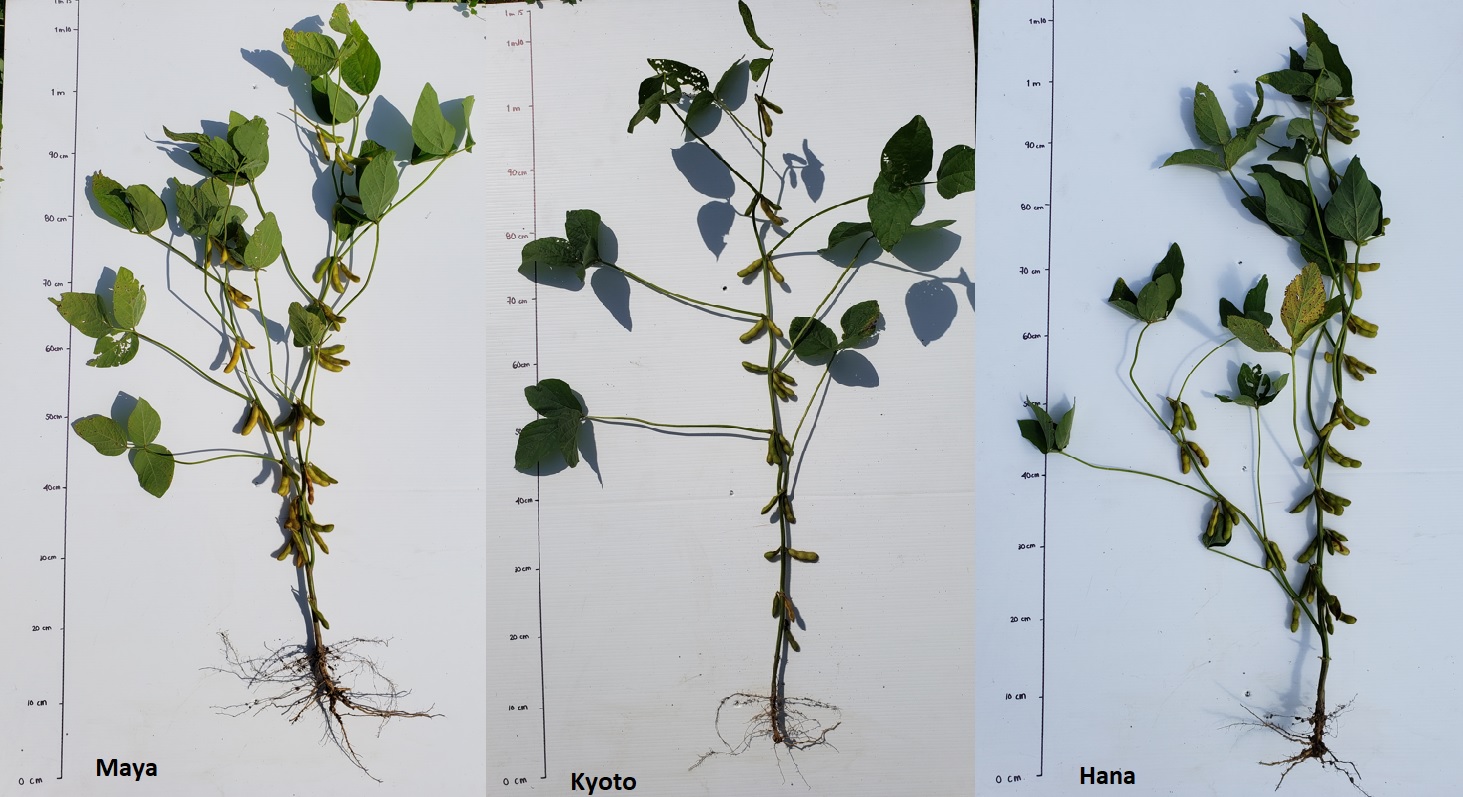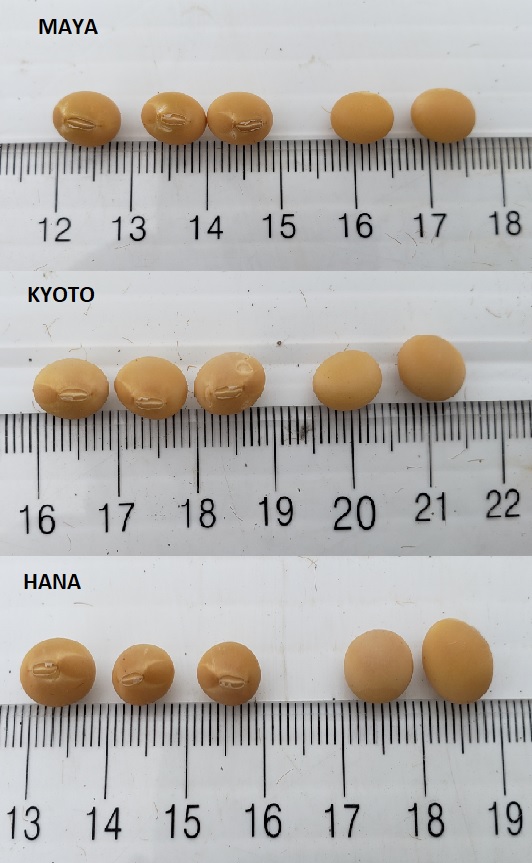Maya
| Denomination: | 'Maya' |
|---|---|
| Botanical Name: | Glycine max |
| Applicant/Holder: |
Semences Prograin Inc. 145 Bas Rivière Nord Saint-Césaire, Quebec J0L 1T0 Canada |
| Breeder: |
Éric Gagnon, Semences Prograin Inc., Saint-Césaire, Quebec |
| Application Date: | 2020-09-16 |
| Provisional Protection:: | 2020-09-16 |
| Application Number: | 20-10352 |
| Grant of Rights Date: | 2023-08-14 |
| Certificate Number: | 6879 |
| Grant of Rights Termination Date: | 2043-08-14 |
Variety Description
Varieties used for comparison: 'Kyoto' and 'Hana'
Summary: When 50% of the flowers are open, the branching attitude of 'Maya' is erect to semi-erect whereas it is semi-erect on 'Kyoto'. When 95% of the pods are ripe, the plants of 'Maya' mature earlier than the plants of 'Kyoto'. At maturity, the seed weight of 'Maya' is greater than that of 'Hana'.
Description:
HYPOCOTYL: anthocyanin colouration present
PLANT: oilseed type, indeterminate growth type, erect to semi-erect branch attitude, tawny pubescence on middle third of main stem, begins flowering early to mid-season, matures early
LEAF: pointed ovate lateral leaflet
FLOWER: violet
SEED: yellow ground colour of testa
HILUM: imperfect yellow
Origin & Breeding History: 'Maya' (experimental designations PR110197Z037, SYN110197037) originated from a biparental cross conducted in 2011 in Saint-Cesaire, Quebec, Canada. A modified single seed descent method was used to develop the variety. From 2011 to 2013, the F1 to F3 generations were grown and harvested in bulk between a winter nursery in Massai, Chile and Saint-Cesaire, Quebec. In 2013, individual plants were selected from the F4 generation in Saint-Cesaire based on visual assessment of lodging resistance, yield, maturity, and disease resistance. From 2016 to 2017, 'Maya' was tested in replicated private trials in Quebec and Ontario and, based on its performance, advanced to public trials of Quebec and Ontario starting in 2018. At the F9 generation, row plots were grown, and selections made for uniformity in flower colour, pod colour, pubescence colour, hilum colour, seed weight as well as protein and oil content to produce breeder seed.
Tests & Trials: The comparative trials for 'Maya' were conducted in 2020 and 2021 at the research farm in Saint-Cesaire, Quebec, Canada. The trials were arranged in a RCB design with 2 replicates per variety. Each 14 square metre plot consisted of 2 rows, each 5 metres long with inter-row spacing of 0.76 metres. Plants were spaced 0.033 metres apart and the planting density resulted in a total of 350 plants per variety. Measurements were taken from 20 plants or parts of 20 plants of each variety per year except for the seed weight with 5 measurements per variety per year. Mean differences were significant at the 5% probability level based on LSD values.
Comparison tables for 'Maya' with reference varieties 'Kyoto' and 'Hana'
Seed weight (grams per 100 seeds) (g)
| 'Maya' | 'Kyoto' | 'Hana' | |
|---|---|---|---|
| mean 2020 (LSD=1.85) | 19.04 | 16.33 | 16.56 |
| std. deviation 2020 | 1.65 | 1.23 | 0.65 |
| mean 2021 (LSD=0.42) | 21.58 | 22.58 | 16.14 |
| std. deviation 2021 | 0.38 | 0.31 | 0.63 |
Time of maturity (number of days from planting to maturity)
| 'Maya' | 'Kyoto' | 'Hana' | |
|---|---|---|---|
| mean 2020 | 117 | 124 | 120 |
| mean 2021 | 119 | 122 | 120 |
Click on image for larger view

Soybean: 'Maya' (left) with reference varieties 'Kyoto' (centre) and 'Hana' (right)
Click on image for larger view

Soybean: 'Maya' (top) with reference varieties 'Kyoto' (centre) and 'Hana' (bottom)
- Date modified: